At 22, the poet Logan February is productive and acclaimed. They are the author of three chapbooks—How to Cook a Ghost (2017), Painted Blue with Saltwater (2018), and Garlands (2019)—and of one full-length collection, In the Nude (2020). In 2020, they received The Future Awards Africa Prize for Literature, for which they were spotlighted in this magazine.
This interview is for our debut special issue, The Next Generation.
Logan, you’ve written three chapbooks and one full-length work. How did you approach each one and are there peculiarities you tend to observe? Does its structure come to you before writing or during the process?
I want to say peculiarity is the order of the day, since the process is quite different each time. But I’m also relatively habitual; I do my same old things and in time I find the poems have a certain shape when collected. My approach with all my books was to work language through cognitive and emotional experience; I had been writing all these poems (which would become Painted Blue with Saltwater) when I was suddenly approached by the idea of a recipe book as conceit, and How to Cook a Ghost was drafted in basically no time.
Structure definitely clarifies the process of making a book, but it doesn’t always come in time, and one has to write anyway. I wrote a few other manuscripts and all I retained from them was the thematic structure that can be found in my first full-length, In the Nude. There, I also began thinking about psychic experience; the book as an interface for the soul. The structure was essential, even though it came after.
Lately, I’m a fan of experiments, methods, structures, as I’ve become interested in conceptualism. But it’s not a question to answer in the present tense. I haven’t written a book in a few years, although I continue to work on multiple projects at once. My process is everything at the moment.
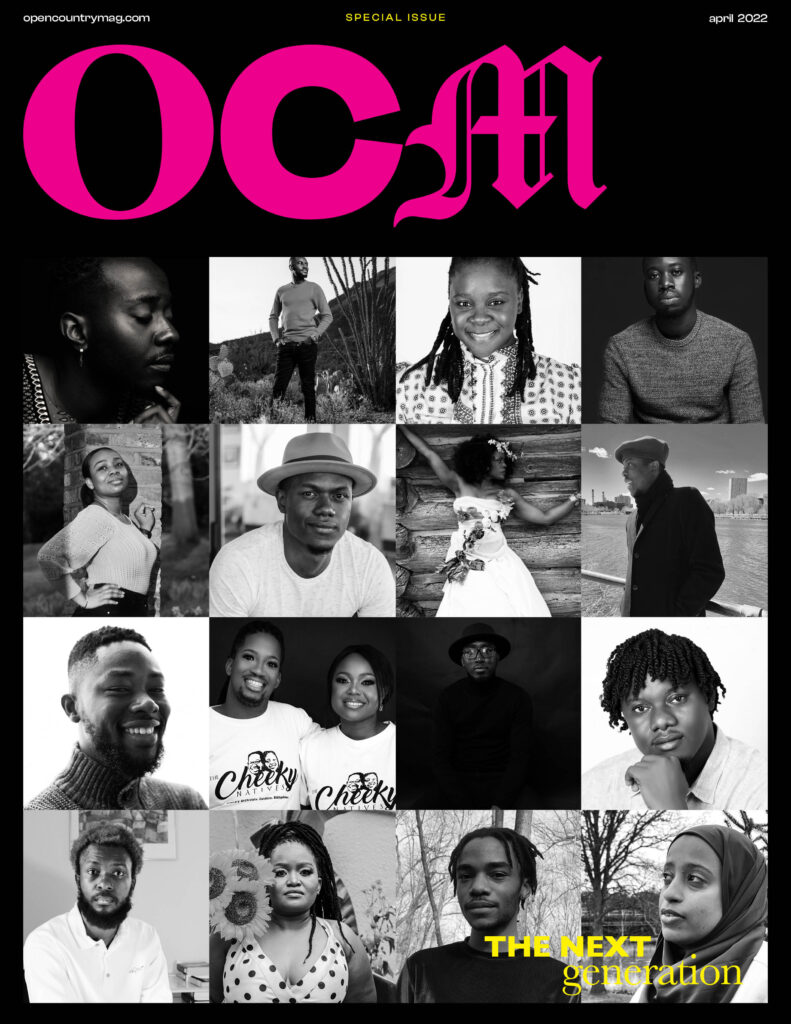
What’s the first time a work of art reached your heart in a profound way that might have influenced what you do currently?
The very first time would be unnameable—I’ve loved art and music and literature all my life. So I feel quite lucky and amazed to be doing what I do. I grew up listening to my parents’ music and reading my older siblings’ books; it was always a mix, I was always loving someone else’s favorite thing. I grew up believing I would write novels because I loved (and love) them so much.
But the first thing that really stood out to me, that likely shaped me into a poet, was the film The Perks of Being a Wallflower. I loved that triad so much, I felt compelled to get my own typewriter when Sam told Charlie: “Write about us.” Shortly after, I watched Safia Elhillo’s 2016 performance of her Alien Suite on Button Poetry’s website, and the vision—this work and its potential—felt clearer to me.
Richard Siken’s Crush: You’ve said this book made you “reimagine possibilities in poetry—especially as a gay person—and the contradictions of beauty and violence, the desires between people and how they can get out of hand and/or overtake us.” I read this book this year, and I had never seen desire and shame so beautifully intertwined and explored—“pleasure and pain,” like you say. I especially found its images very cinematic and at several points thought of Barry Jenkins’ Moonlight. Are there poems or books which you place in conversation with movies?
I loved Moonlight; it made me cry. Movies tend to make me cry pretty easily, more than any other works of art. The audiovisual narrative and the fiction of it, I guess, make for great mimesis. Movies are very different from poetry in my mind, though. I don’t have a highly visual imagination, so I’ll often take a movie as its own thing, or relate my understanding of it to stories/myths with similar themes or arcs. I don’t see this directly having very much to do with poetry, in the way I think about it.
Documentary films, though, are easier for me to place in conversation with books of poems. For instance, Paige Lewis (who is a brilliant teacher of mine) has a poetry collection titled Space Struck. I thought about that book a lot while watching AppleTV+’s Fireball: Visitors from Darker Worlds, a documentary on meteorites and how they affect our world and our cultures. I think documentaries work to render reality and teach us something about it, in a way I would liken to how (books of) poems work.
I really liked your piece on The Rumpus, which was part personal essay and part music journalism. First, I’d like to know why you went for that shape. Second, you’ve written music and written about music. Do they share any emotional nuances? Three, if you were to make a full–length book from a music album—which would it be and why?
Thank you for saying this. That essay took the only shape it could have: I spent nearly a year needing to write about that experience, but I couldn’t find the right angle or frame. I needed to write through something else, and I had been listening to that Fever Ray album, Plunge, as well as reading Maggie Nelson’s Bluets and Anne Carson’s The Glass Essay that year. All of these works were about the loss of love, and a kind of, I don’t know, insanity, which came with that. The shape of my essay and its intensity of feeling were a natural response to the confessional, self-questioning, and highly stylised works I had engaged with in my own emotional processing.
Actually, writing music is so different from writing about it—I do wish I could find more synthesis between them. Of course, both processes inform each other eventually. When I listen to music for review, I am guided by instinct until a trustworthy line of analysis appears. I learn so much from writing about music, but when I go to write my own songs, my brain is in such a different mode, I feel like I know nothing at all. It’s a skill that will take practice; I know I’ve had more practice with thought-based, responsive writing, for sure. But the one emotional nuance they share, for me, is they both begin with a surrender to listening. Both practices are a result of listening, with wonder, from either end of the process.
Question three is not something I have thought much about, so this is mostly speculative—I love the question, though. Since we are on the subject of the music essay, another book I often went back to in that period was Dorothea Lasky’s fourth collection, Rome. It’s also very intense, full of heart, and she just doesn’t give a fuck. I loved that, and I’ve actually written a few songs based on poems from this book, like “Horace, to the Romans” and “You Were So Blond.” But, to write a whole book based on an album, it feels impossible to choose one. There are bits of my heart in so many records; my ideal book would comprise similar personal essays about a handful of albums in various genres.
What are you reading right now?
As usual, too much at once. Robin Coste Lewis’ sprawling book, Voyage of the Sable Venus and Other Poems. Kemi Alabi’s debut collection, Against Heaven. My friend also recommended a play by Marina Carr, an adaptation of Euripides’ Hecuba. And I’ve been working my way through submissions of poetry and nonfiction from emerging Nigerian writers in the queer community, for PANK Magazine’s Queering the Nigerian Divine folio issue, due out in June. These works, in particular, have been opening my heart. ♦
“Logan February on Their Becoming” appears in The Next Generation special issue of Open Country Mag, profiling 16 writers and curators who have influenced African literary culture in the last five years, curated and edited by Otosirieze Obi-Young. The issue comes with two covers, designed by Emmimade Design Agency.



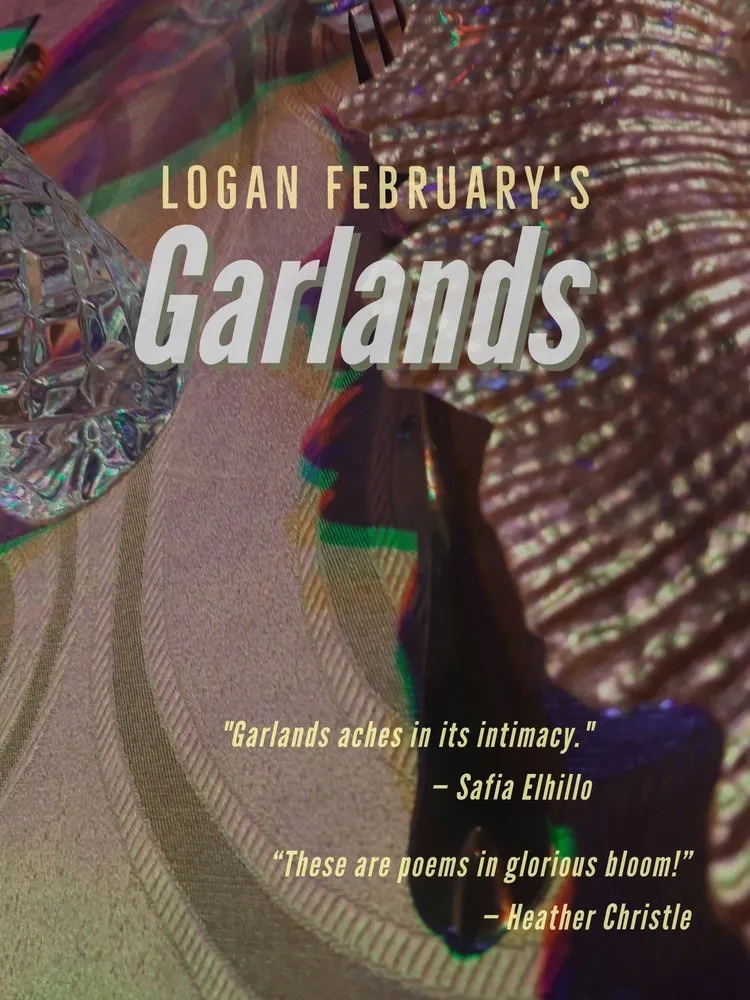
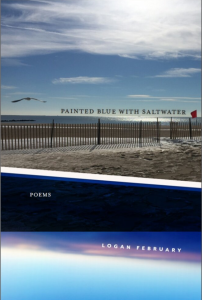
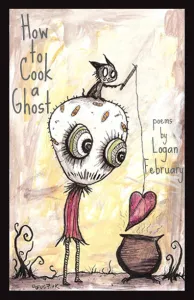
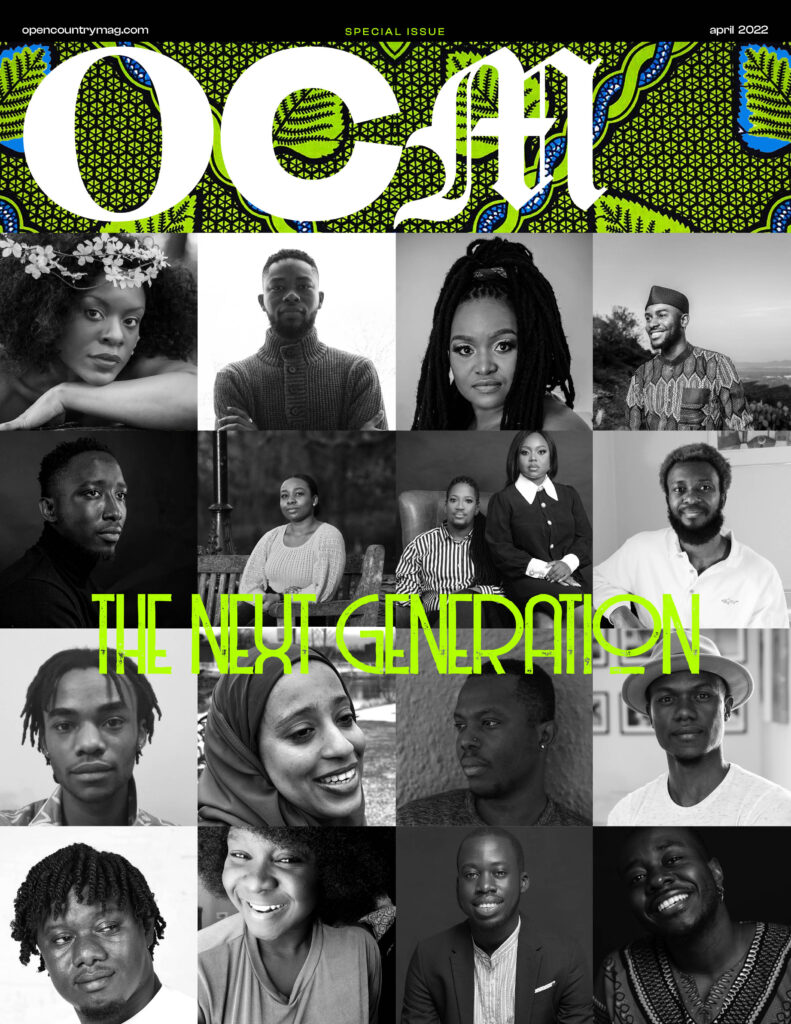
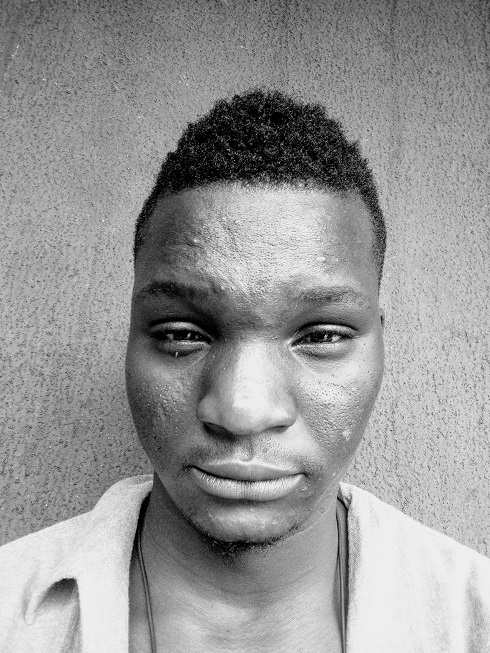
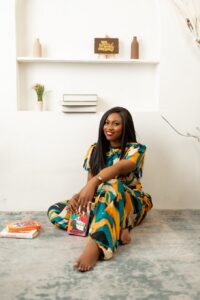
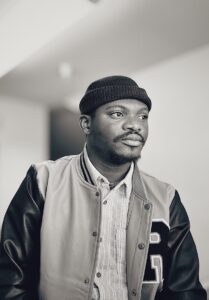
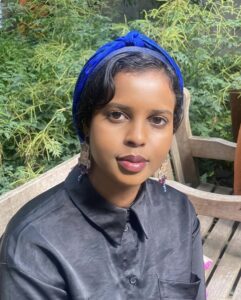
4 Responses